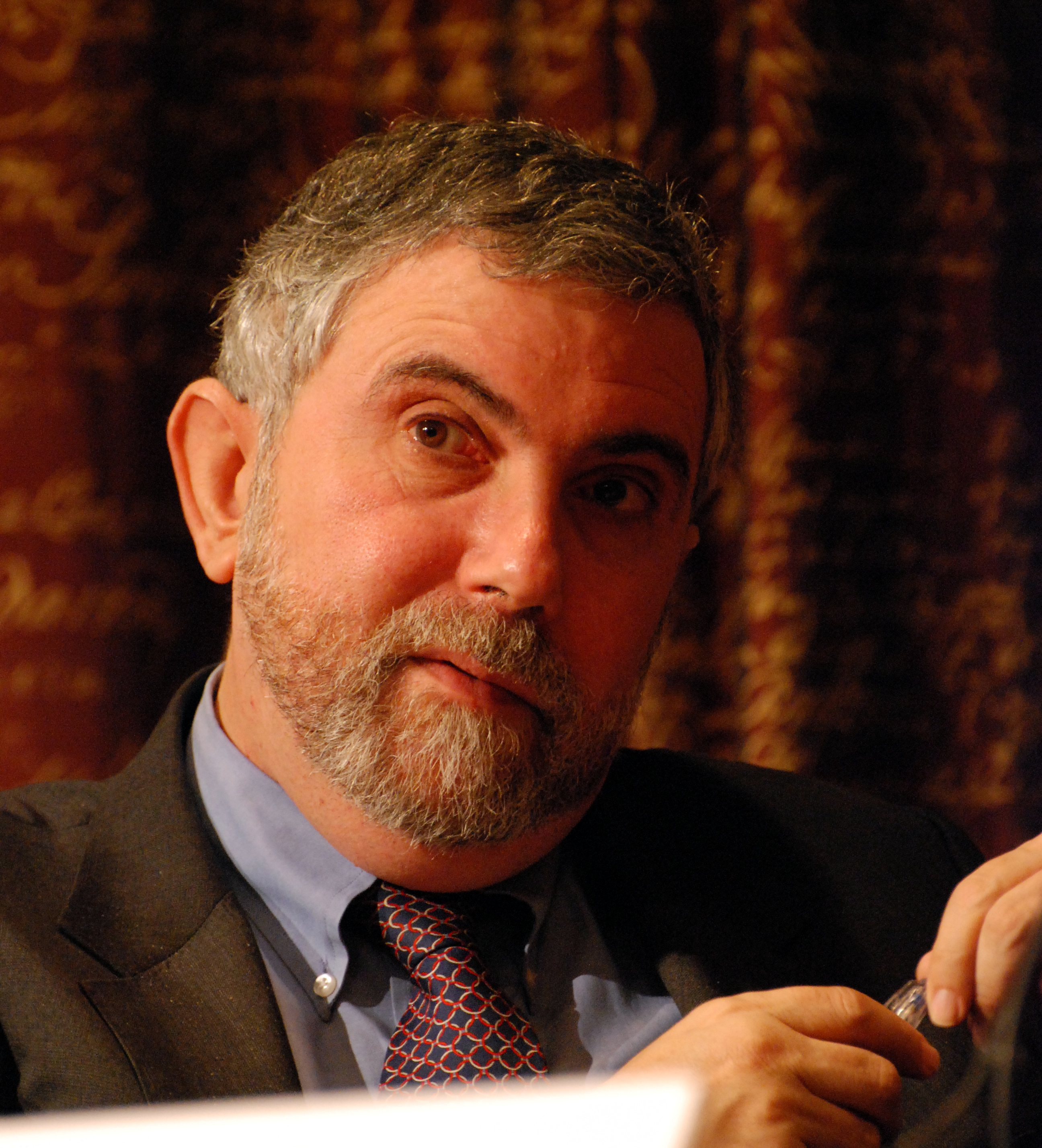Introduction: Looking for Magicians
Peddling Prosperity (1994)
Paul Krugman: Citations en anglais
Pop Internationalism (1996), Asia's Miracle (1994)
think guns
Sanders Over The Edge http://www.nytimes.com/2016/04/08/opinion/sanders-over-the-edge.html (April 8, 2016)
The New York Times Columns
"Two Cheers for Formalism", The Economic Journal, Vol. 108, No. 451 (Nov., 1998)
The New York Times Columns, The Populism Perplex (November 25, 2016)
"Don't Laugh at Me, Argentina", Slate (July 20, 1999)
When asked to define the economic policy of the Bush administration in a BuzzFlash interview http://www.buzzflash.com/interviews/03/09/11_krugman.html, 11 September 2003
"Why aren't we all Keynesians yet?", Fortune (Aug. 3, 1998)
"Is Capitalism Too Productive?", Foreign Affairs (September/October 1997)
Source: Economics (4th ed., 2015), Chapter 33. Macroeconomics: Events and Ideas
Introduction
The Return of Depression Economics and The Crisis of 2008 (2009)
Source: Peddling Prosperity (1994), Ch. 1 : The Attack on Keynes
The New York Times Columns, The Populism Perplex (November 25, 2016)
"Who Was Milton Friedman?", The New York Review of Books (February 15, 2007)
The New York Review of Books articles
Sanders Over The Edge http://www.nytimes.com/2016/04/08/opinion/sanders-over-the-edge.html (April 8, 2016)
The New York Times Columns
Development, Geography, and Economic Theory (1995), Ch. 1. The Fall and Rise of Development Economics
Op-ed, "Franklin Delano Obama," New York Times, November 10, 2008 http://www.nytimes.com/2008/11/10/opinion/10krugman.html
The New York Times Columns
"Baby-Sitting the Economy", Slate (Aug. 13, 1998)
"The Curious Politics of Immigration" http://krugman.blogs.nytimes.com/2010/04/26/the-curious-politics-of-immigration/, 26 April 2010, The Conscience of a Liberal blog at The New York Times
in Paul Krugman Interview https://www.youtube.com/watch?v=Z-8yFPTwhKs&feature=youtu.be&t=363 by Norwegian TV channel NRK (January 8, 2014)
Source: The Return of Depression Economics and The Crisis of 2008 (2009), Chapter 10. The Return of Depression Economics
Source: The Conscience of a Liberal (2007), Ch. 13. The Conscience of a Liberal
Paul Krugman and Richard Layard, "A Manifesto for Economic Sense" (June 27, 2012)
"Who Was Milton Friedman?", The New York Review of Books (February 15, 2007)
The New York Review of Books articles
"Who Was Milton Friedman?", The New York Review of Books (February 15, 2007)
The New York Review of Books articles
"Who Was Milton Friedman?", The New York Review of Books (February 15, 2007)
The New York Review of Books articles
"The Big Zero", The New York Times (27th December, 2009)
Pop Internationalism (1996), Competitiveness: A Dangerous Obsession (1994)
